12 Senior Stars Who Appeared on The Apprentice!
“You’re hired” was a phrase everyone waited to hear on the popular television show The Apprentice or its variation, The Celebrity Apprentice, considering they were both meant to be long, on-cam...
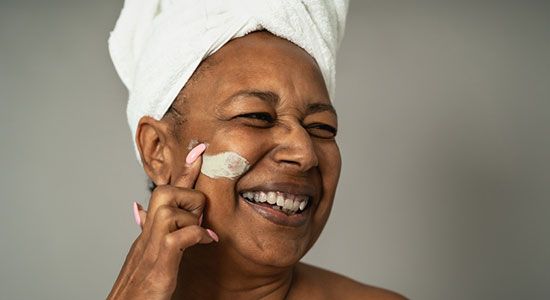
When you’ve spent six remarkable decades gracing this earth, your skin tells a story of laughter, wisdom, and experiences. However, aging skin also comes with skincare challenges like wrinkles, age spots, and dryness. Sun exposure is also a significant issue for mature skin. In fact, up to 80% of visible signs of aging result from sun damage.1
Due to these factors, you may have tried to step up your skincare routine but didn’t know where to start or what to do. With so many options, finding the best skincare routines can be a huge challenge if you are 60 and above.
A proper skincare regimen is your best ally in tackling aging skin challenges for a healthier, more radiant look. This is why we’ve specifically curated this ultimate guide to a skincare routine for women over 60.
In this article, you will learn the importance of a skincare routine, what to include in your skincare routine, and the ingredients to choose or avoid.
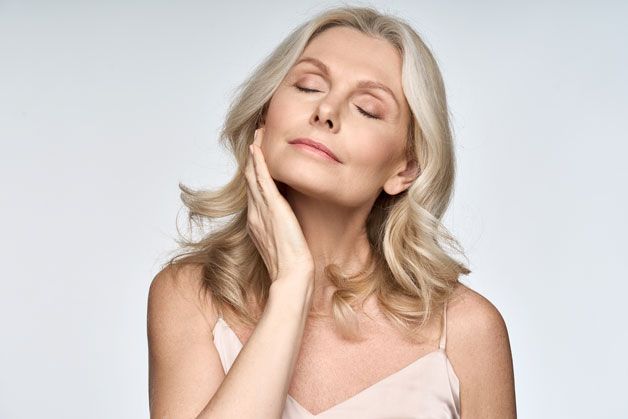
As you age, various changes will occur in your skin, including2:
As you age, your cells release highly reactive chemicals that can destroy the cells that make collagen. Therefore, it gets more challenging for your skin to keep up with the collagen production your skin needs.3 This decline in collagen production also leads to a loss of skin elasticity.
Your hormones also change as you age, and your skin slowly stops retaining moisture effectively, causing dryness. Additionally, signs of aging from years of environmental damage and UV exposure start to show up. Your skin starts thinning due to these external factors, and cell turnover and functioning slow down. All these factors contribute to those deeper folds and wrinkles you notice on your skin.
However, there are many things you can do to continue having radiant skin even at 60 and beyond. You can focus on embracing the changes while creating a skincare routine to soothe, nourish, and protect your mature skin.
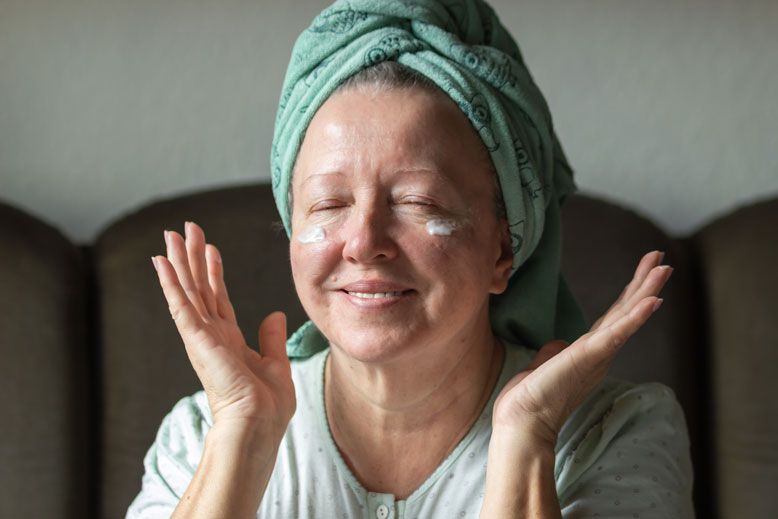
Developing a skincare routine involves knowing what products to use, how your lifestyle affects your skin health, and how to use certain products effectively. Below, we discuss the pillars of skincare routines you should know if you are 60 and above.
A mild or gentle, fragrance-free cleanser, body wash, or moisturizing bar soap can help soothe your skin.
Harsh cleansers can worsen dryness by stripping natural oils. Your cleanser should be strong enough to remove impurities but gentle enough to protect and reinforce the skin barrier.
The following are some excellent expert-recommended examples of gentle cleansers:

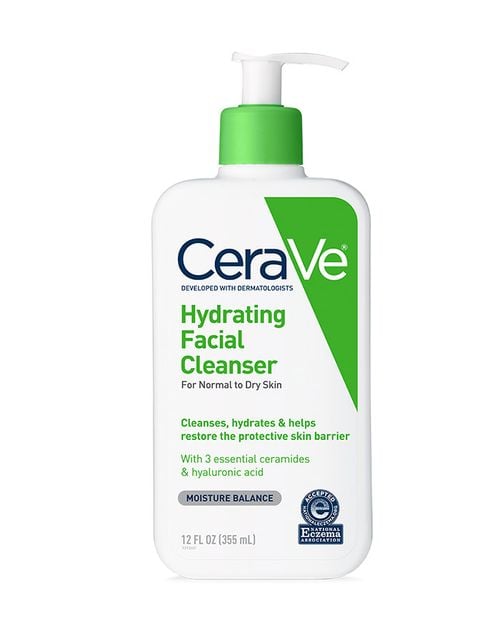

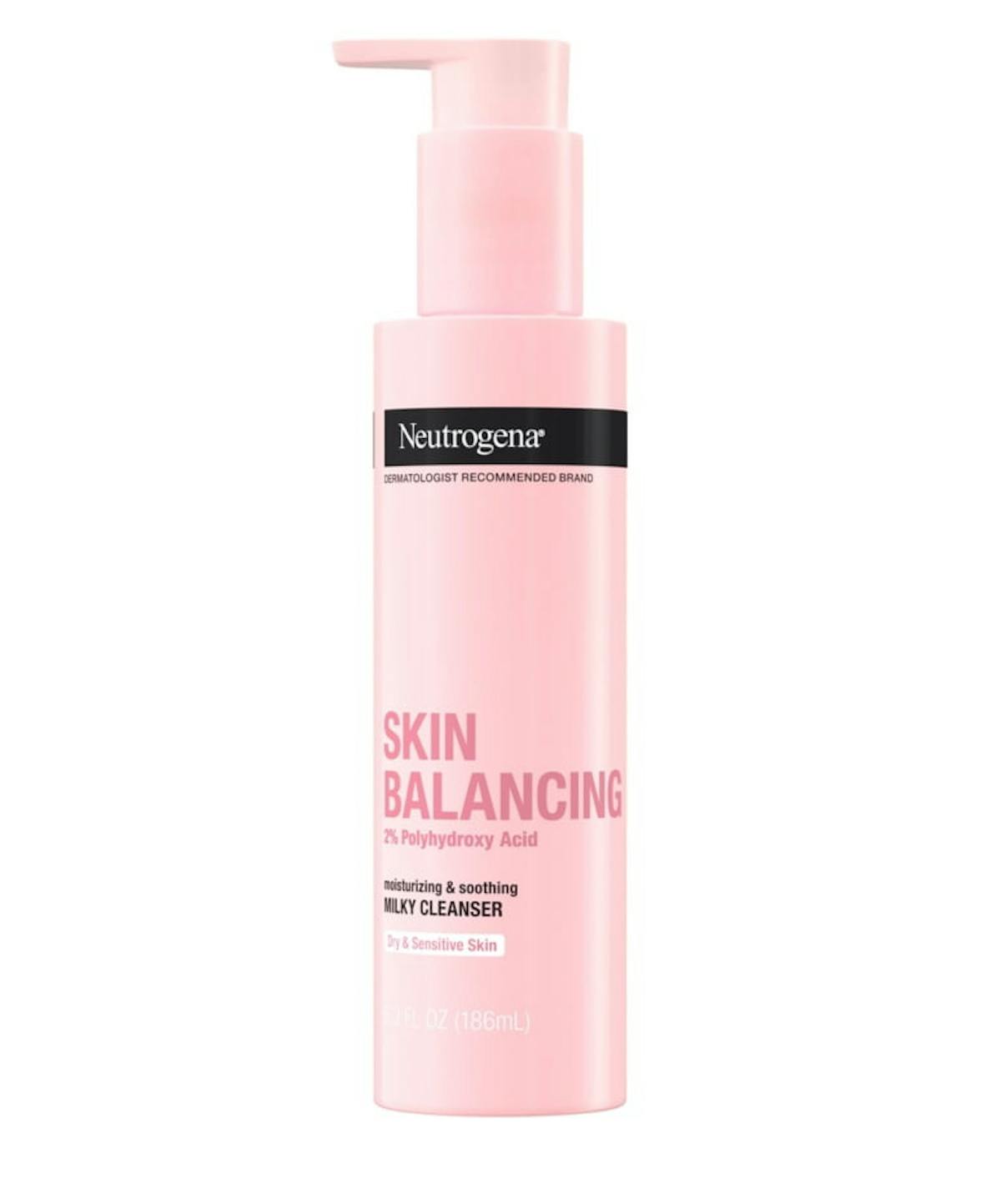
Mature skin requires proper hydration and moisturization to tackle dryness and thinning.
Rich creams and serums nourish your skin and restore your radiant, healthy glow. Moisturizing helps restore your skin’s protective barrier.
Ingredients to look for in hydrating or moisturizing products include:
● Hyaluronic acid – increases flexibility, helps retain moisture, and keeps tissues hydrated and lubricated. Using a hyaluronic acid serum is associated with better hydration, moisture, elasticity, and lightening of the skin.4
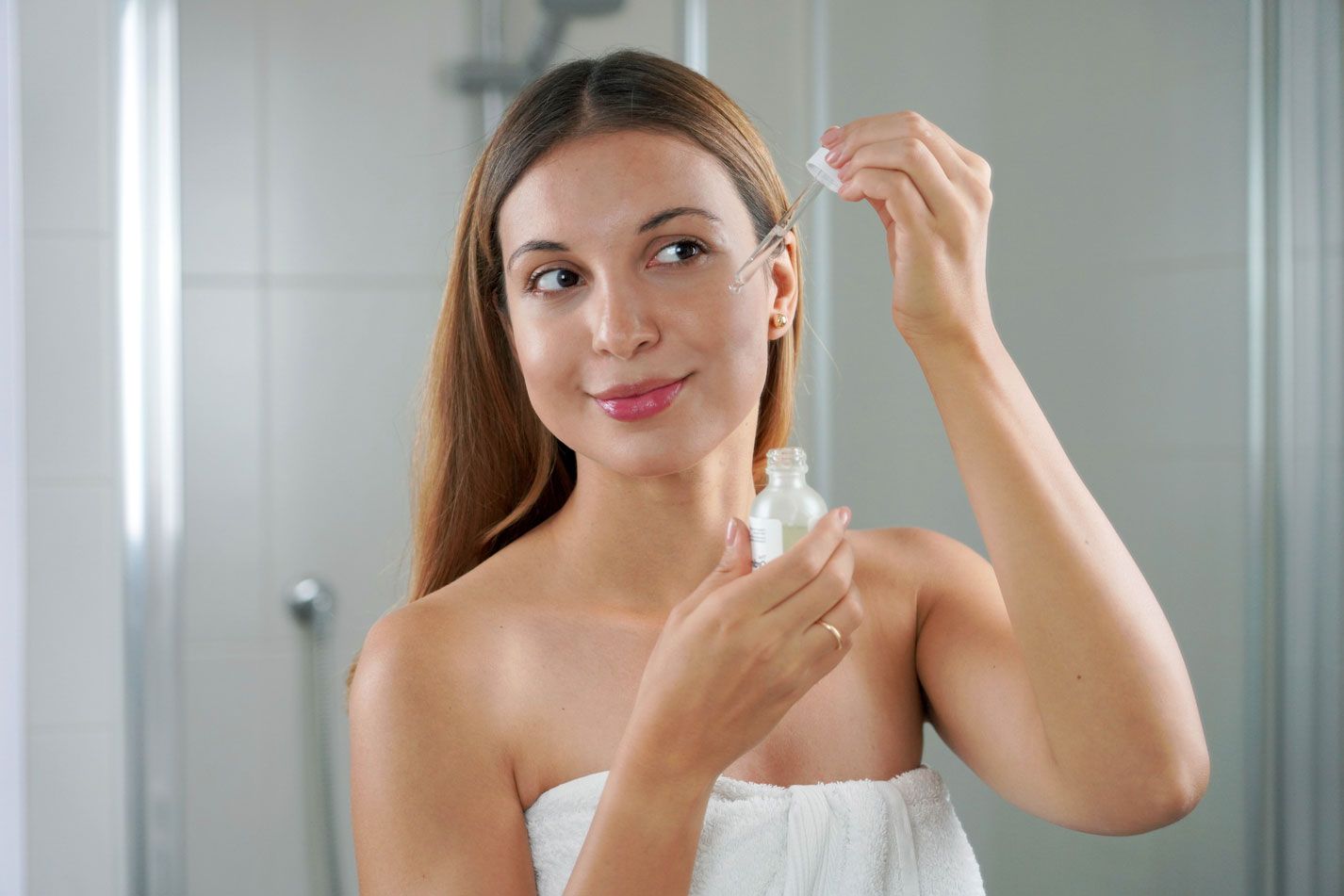
● Ceramides – lipids (fatty molecules) that maintain a healthy skin barrier, improve skin cells’ health, lock skin moisture, prevent dryness and irritation, and protect the skin against environmental damage.
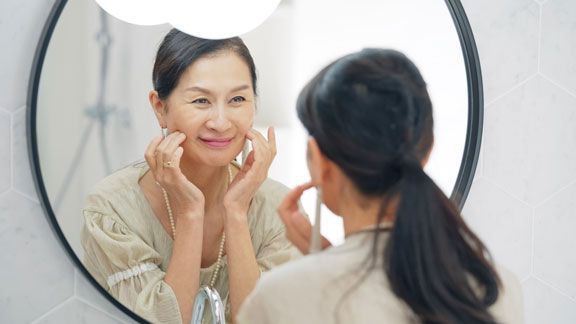
● Peptides – smaller versions of proteins that penetrate and moisturize the skin.
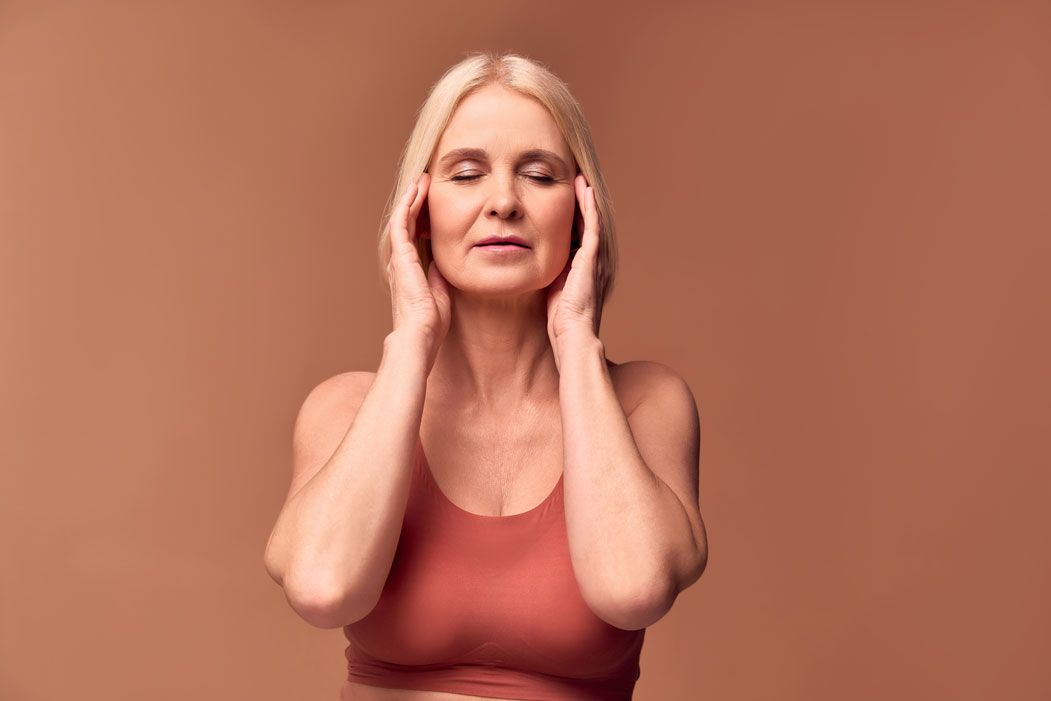
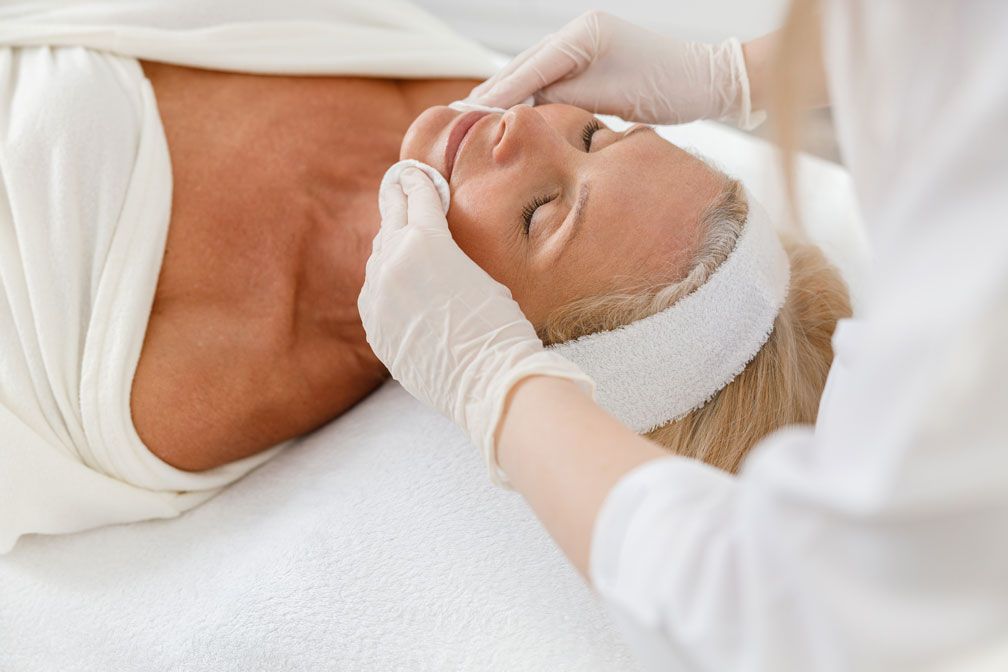
Gentle exfoliation, the removal of dead skin cells using exfoliation tools and chemicals, is a crucial component of aging skincare.
Skin cell turnover slows down as people age. This high turnover makes it vital to remove dead skin cells & encourages your skin to replace those old cells with new ones.
Gentle exfoliation makes skin appear smoother, brighter, and clearer. Opt for products formulated for mature or sensitive skin. Products with gentle ingredients such as lactic acid are a good choice. Go for exfoliating products that contain vitamins as well. Exfoliate once or twice (maximum) a week.
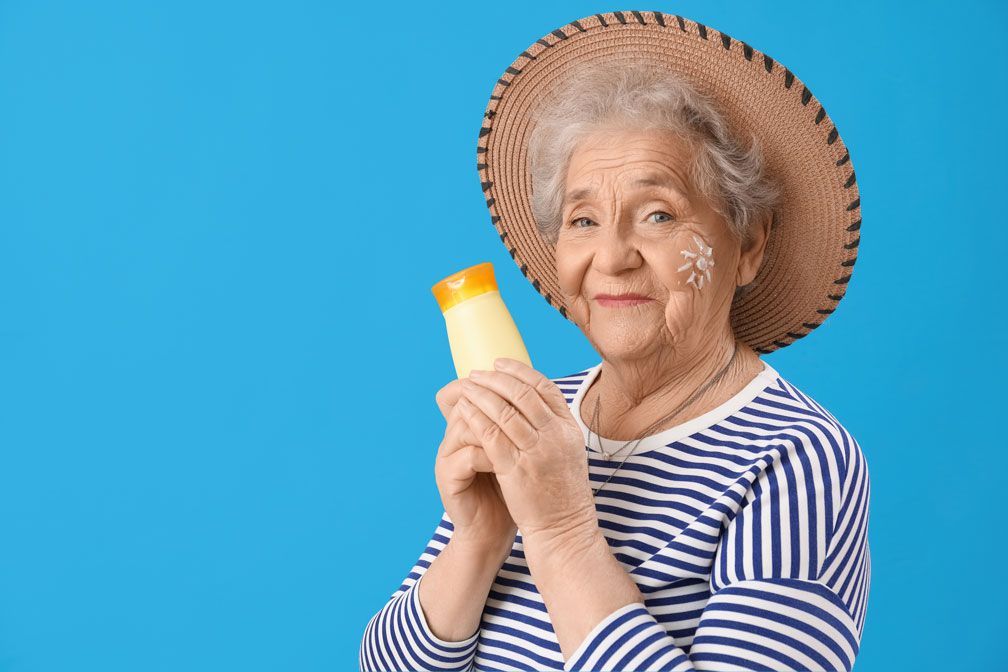
Sun protection is essential to aging skincare because it protects your skin against damage and prevents or lowers your risk of skin cancer.
The Centers for Disease Control and Prevention reported that many older adults don’t protect their skin from the sun; only 15% of older adults use sun protection.5
Exposure to UV rays can further affect collagen and elastin, increase the risk of age spots, and contribute to the formation of deep wrinkles. This is because UV light breaks down both elastin fibers and collagen.
These are essential parts of your skin – they are connective tissues and also support your skin. When the sun’s UV rays break down this layer of your skin, your skin loses flexibility. Additionally, it also makes your skin weaker. This essentially speeds up your skin’s aging process.
The best sunscreens for mature skin include:

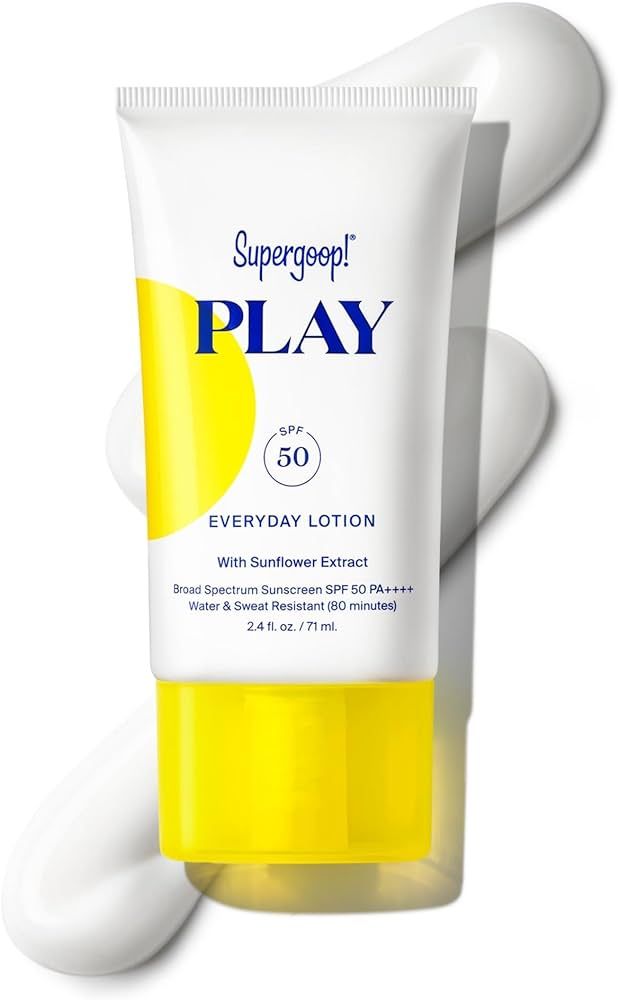
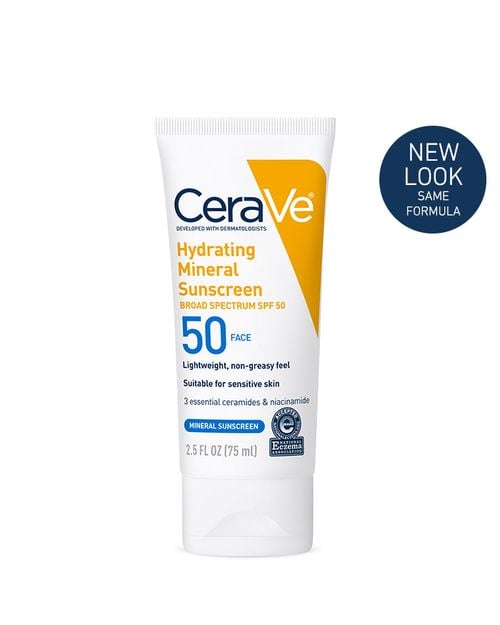
The targeted treatments in the aging skincare routine help tackle the common challenges that people with mature skin face, such as age spots and deep wrinkles. These treatments can include natural and clinical solutions.
Natural solutions include using serums and over-the-counter (OTC) creams with high concentrations of active ingredients such as retinol and natural ingredients such as aloe vera, green tea, coconut oil, or lemon juice.
Clinical solutions include dermatologist-prescribed creams and serums for wrinkles or prescription bleaching creams for age spots. Laser therapy and Botox are also targeted solutions for age spots and wrinkles.
An ideal senior skincare routine should contain the following ingredients:
● Retinoids – compounds made from vitamin A. Retinoids’ biggest perks are reduced fine lines and wrinkles and increased collagen production. Retinoids can stimulate the production of new blood vessels in the skin and fade age spots. These benefits occur with regular use.6
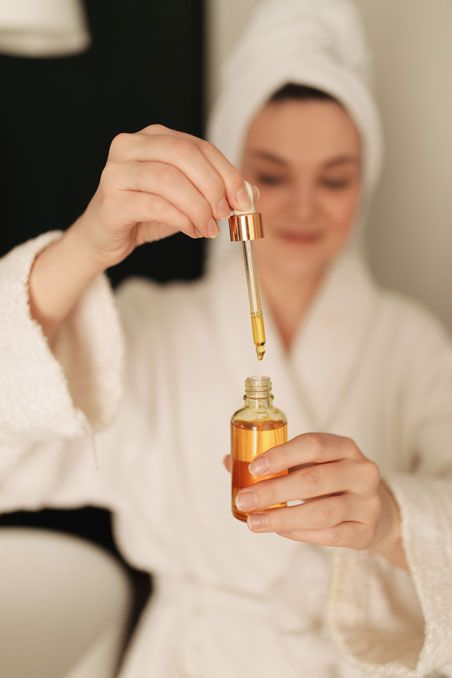
● Peptides – exhibit skin-firming effects by filling fine lines and wrinkles. They promote skin repair, inhibit the signs of aging, and give skin a smoother, rejuvenated appearance.
● Antioxidants – such as green tea extract and vitamins C and E, protect skin cells from free radicals and oxidative stress to improve texture and reduce the appearance of fine lines and wrinkles.
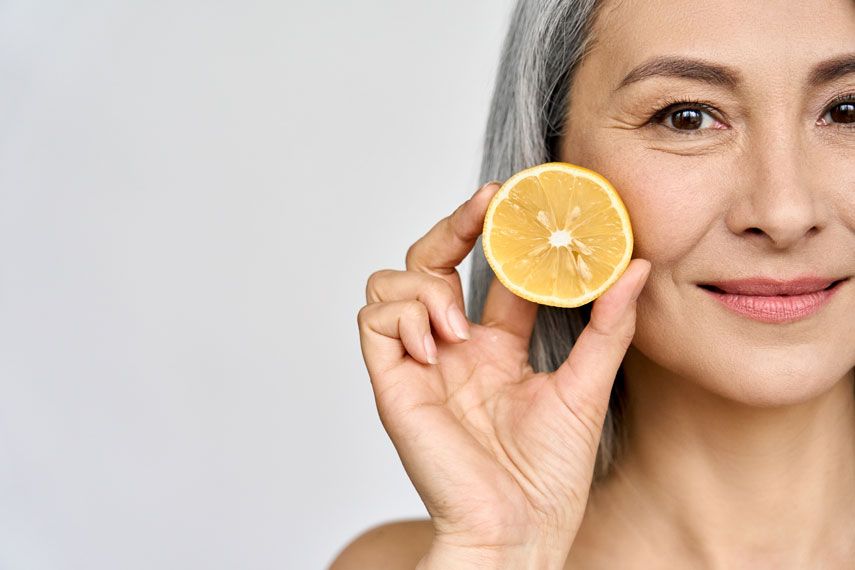
● Natural oils – rosehip oil can boost collagen formation and improve aging-induced skin conditions,7 argan oil improves skin’s elasticity and firmness, and jojoba oil helps smooth out wrinkles and slow down signs of aging.
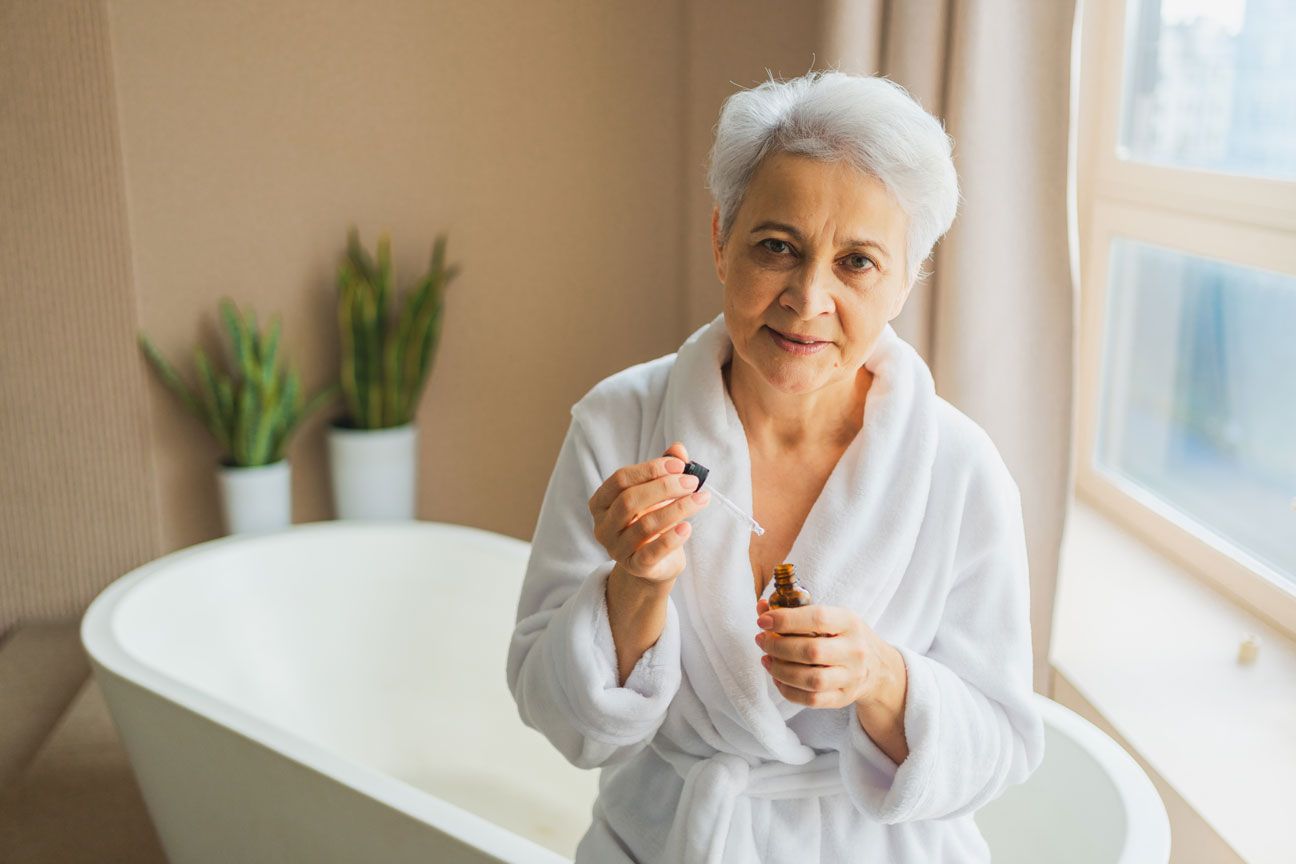
The neck, hands, and décolletage are exposed to the sun and external influences such as air pollutants. For example, skin on the neck and décolletage is thin and prone to damage and loss of elasticity.
Make sure to cleanse and hydrate your neck and décolletage. Use sun protection in these areas too. Apply a rich hand cream daily and use creams that target the neck and cleavage skin. Useful products to try include:
● No7 Restore & Renew Multi Action Face & Neck Cream SPF 30
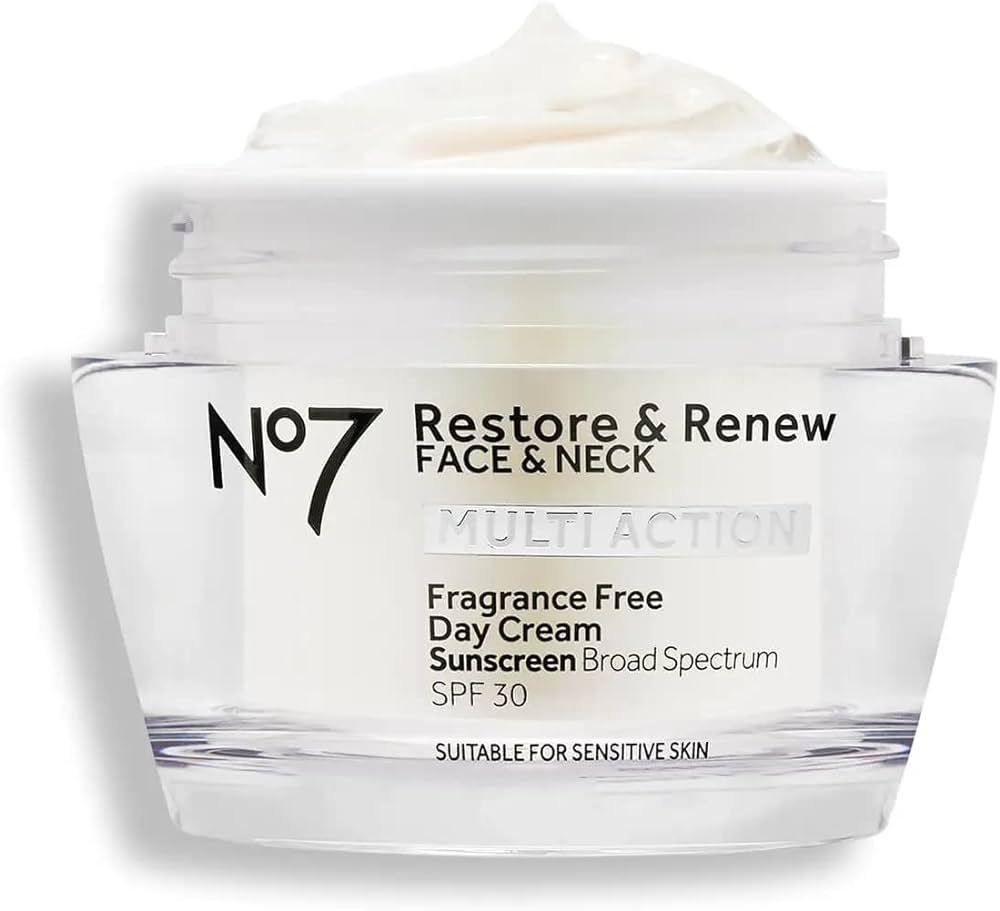
● CeraVe Therapeutic Hand Cream
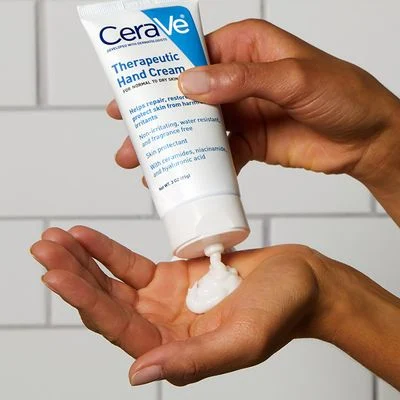
● Kitsch Moisturizing Spa Gloves

A healthy lifestyle is as important as a regular skincare routine for those over 60. The following are some approaches for improving your skincare with nutrition and lifestyle changes:
Technology and science keep evolving, which results in new treatments and skincare options.
For example, LED light therapy increases skin collagen, reduces wrinkle formation, and alleviates inflammation.9
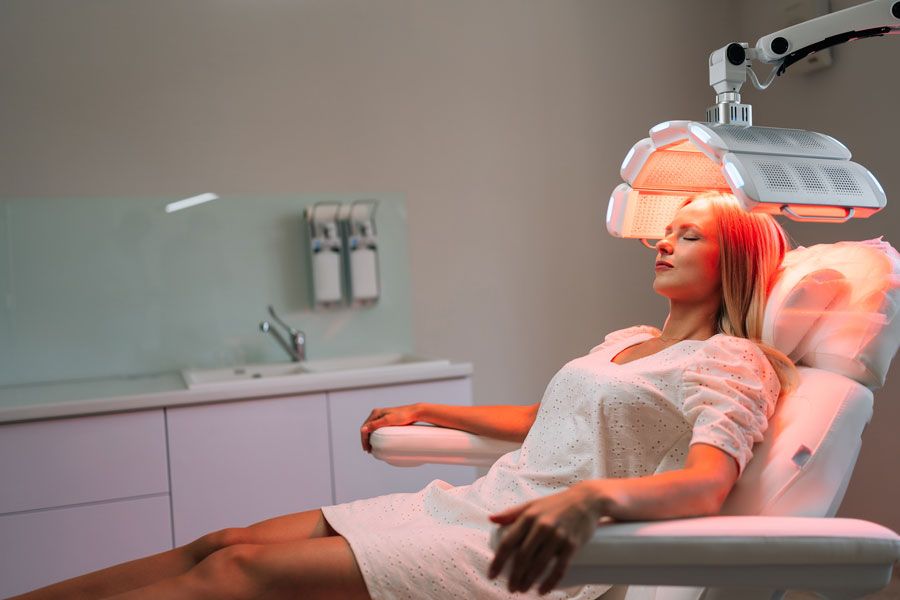
● Microneedling
Another trend in aging skincare is microneedling, which stimulates the production of collagen for an even tone and texture of the skin.
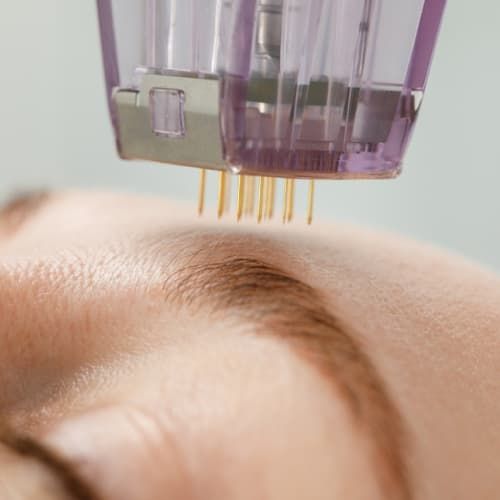
Nowadays, there are a lot of at-home skincare gadgets worth checking out. Good examples are ice rollers, face (jade) rollers, LED masks, gua sha stone, and skincare wands with red light therapy.
As we age, our skin changes and requires specialized care. Sensitive complexions over 60 need gentle, nourishing products to look radiant while avoiding irritation.
Handle mature skin with care and consistency to maintain a healthy, vibrant glow.
It would be ideal to adapt skincare to every decade of life. When we age, our skin changes as well. It’s necessary to modify your skincare routine adequately for the best results.
Ingredients to avoid include mineral oil and other petroleum derivatives, chemical sunscreens, alcohol, and sulfates.
Mineral oils are too heavy for the skin, clog pores, and halt cell regeneration. Chemical sunscreens don’t protect the skin effectively. Alcohol strips away skin’s natural moisture, and sulfates, while considered safe in specific amounts,10 make skin vulnerable to damage because they can be irritating. In case you are interested in Stunning and Beautiful Celebrity Women Over 60.
Post-menopause, your decreased levels of estrogen may cause dry and itching skin. This is why it’s necessary to adjust your skincare routine.
Estrogen stimulates elastin and collagen. Additionally, estrogens enhance moisture or hydration, increase cell viability, act as antioxidants, and increase blood flow.11
Yes! While wrinkles are a normal part of aging, a regular skin care regimen with all the right ingredients can delay or slow down the process.
A good skincare routine for women in their 60s should focus on hydration, protection, and gentle care. Start with a mild cleanser twice daily, followed by a rich, hydrating moisturizer. Sun protection is crucial, so apply a broad-spectrum SPF 30+ sunscreen every day. Consider incorporating a retinoid product to address fine lines and skin texture. Use a specialized eye cream for the delicate eye area. Gentle exfoliation 1-2 times weekly can help remove dead skin cells. Include antioxidant-rich serums, like vitamin C, to protect against free radicals.
Stay hydrated by drinking plenty of water and using products with ingredients like hyaluronic acid. Don’t forget to extend your skincare to your neck and décolletage. Maintain a healthy lifestyle with a balanced diet, regular exercise, and adequate sleep. For personalized advice, especially if you have specific skin concerns, consult a dermatologist.
A proper aging skincare regimen makes it easy to celebrate the aging process rather than fear it.
Eating a healthy diet, drinking enough water, and using the right skincare products for your skin are all great starting points if you want to look after your skin. You also have to look at things that you might want to remove from your life, such as too much sugar and the habit of smoking.
It’s never too late to set up a regular skincare routine and pamper yourself. Taking care of your skin is a form of self-love.
Show your skin some love, and it will return the favor through a radiant, healthy complexion.

Doctor, author and fitness enthusiast, Ahmed Zayed, MD, is a surgery resident with a passion for helping people live a happy healthy life. Owner of Zayedmd and an author of numerous health-related books and contributor to several medicine, health and wellbeing websites, Dr. Zayed has spent his time between treating patients in the hospital and spreading awareness among the public. Having spent years helping patients, Dr. Zayed understands how important it is to have the correct information needed to maintain a healthy lifestyle. I wrote for many top-rated websites like Washington Post, Chicago Tribune, ConsumerHealthDigest, and many others. My ebook about coronavirus was on Amazon's bestseller list


Unlock expert insights and tips with our exclusive ebook. Enter your email to get your free copy.
Please check your email for a welcome message from Modern60. If it's not in your inbox, kindly check your spam or junk folder
There are no comments yet